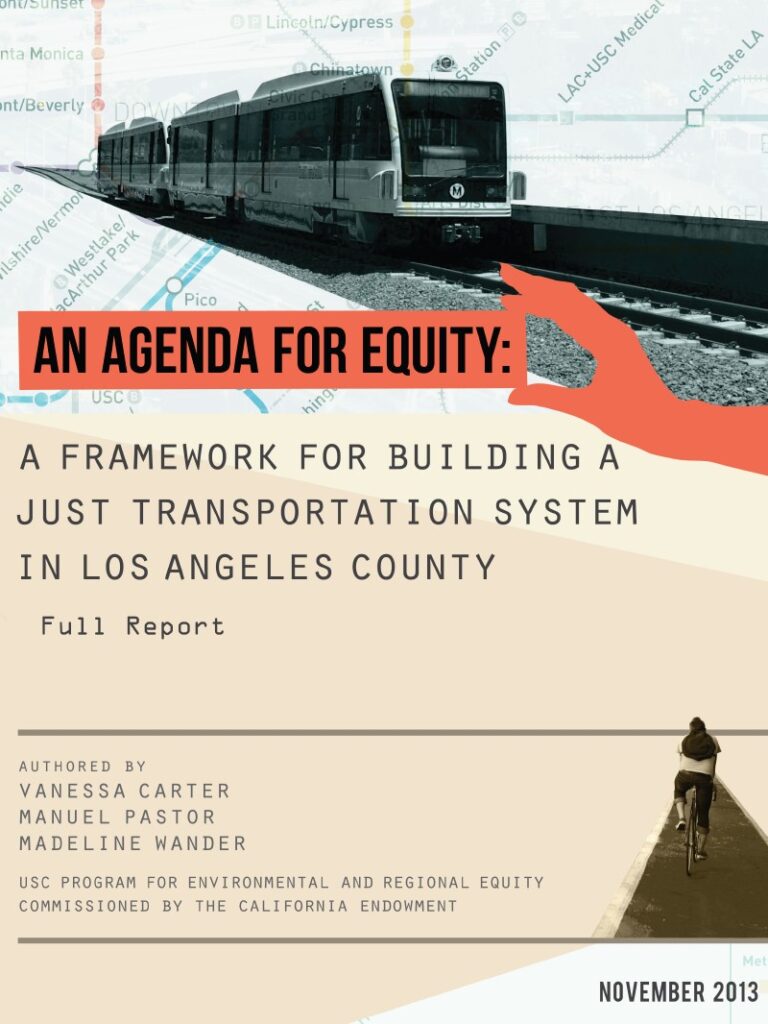
November 2013
By Vanessa Carter, Manuel Pastor, and Madeline Wander
Please note: reports dated earlier than June 2020 were published under our previous names: the USC Program for Environmental and Regional Equity (PERE) or the USC Center for the Study of Immigrant Integration (CSII).
Los Angeles is reinventing itself: from sprawl to community development, from car dependence to transit orientation, from municipal fiefdoms to functional regionalism, from inequality to equity. Over the next 30 years, Measure R is funding a transportation build-out across the region to the tune of $40 billion, among other opportunities.
Now is the time to gather a broad-based coalition of institutions: equitable transportation access, shared distribution of benefits and burdens of development, and partnership in planning processes. To move from vision to reality toward the Next Los Angeles, it is vital to collaborate on new policies that invest with equity while also acknowledging the existing tensions and complexities within the field.
“An Agenda for Equity: A Framework for Building a Just Transportation System in Los Angeles County” aims to spark new conversations that bring together the usual and not-so-usual suspects, and find a new common ground around a shared framework for collective action—“Just Growth” and transportation equity.
“Just Growth” – investing with equity – has become critical for sustainable economic growth.
That is, social inclusion is the key to prosperity, and should not just be an afterthought. Research shows that regions with more equitable development result in sustainable economic growth for the region.
Transportation equity is one of the best examples of Just Growth.
Transportation is a sort of “just growth sweet spot”– it connects people to jobs, generates transit-oriented housing development, affects our overall health and environments, among other things. The opportunities to infuse equity are many.
In short, transportation equity means putting people first.



